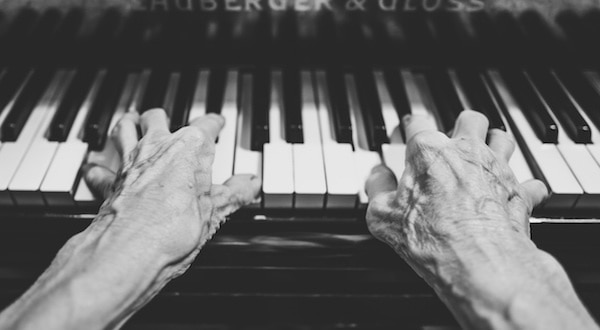
Am I Old or Am I Young?
When I started writing this blog, I was 21 years old. It doesn’t seem that long ago – after all, five years is no great span of time. But a lot has changed in five years. I have a master’s degree now. I work a nine-to-five job. I have car payments, professional development events, and my hair, once a long, voluminous ponytail, is cropped, thinning, and dry.
After all, the title of this blog is “Young, American, Hindu,” and while I remain American and Hindu, I am beginning to wonder how well I fit the descriptor ‘young.’ I started out as a very young writer, full of raw idealism and fervent adherence to what I believed in. Where I was coming from, life felt so full of change – every day was some new momentous sweeping change that would take me far away from the person I was the previous day. I was in the northeast, still in school, still pursuing higher education like it was a grand romance. I didn’t own any business clothes. I spent most of my time studying, watching movies, or playing games with friends. It was an almost kitschy picture of a young person’s life.
Change came, as it does to those who grow older. I had left Texas for college and grad school in the hopes that I would grow up, and I did. By the time I returned to Austin, I had acted in, directed, and stage-managed three productions in New York. I had held down five part-time jobs while being a full-time student and found the experience exhilarating. In the nearly eight years I spent away from home, family, Radha Madhav Dham and Texas weather, I had battled snow, hurricanes, heartbreak and overdrawn bank accounts. The high school friends I reconnected with had, by and large, not changed, at least not in same ways I had. What changes there were, for the most part, were for the worse. The lazy had become lazier, the annoying had become self-congratulating, and the depressed had become antisocial. Home, if ever Austin was such a place for me, quickly became much lonelier.
Dispensing with these general observations, I can say with some degree of certitude that the person who knows how best I have changed is myself. I have become more responsible, if more exacting regarding details, lists and deadlines. I care more for my diet, and I take my departures from healthy eating just as seriously. I work harder to make time for friends, even if I am stretched thin between them. I have not grown taller, but rounder. I have not grown hairier, but find myself disconcerted with my (relatively) clean-cut appearance, regularly scrutinizing this thick-bearded but short-haired sellout in the mirror. I even have a gym membership now, and a gym partner to hold me accountable.
I suppose the best argument I can make for my claim to youth is that for all my responsibility, wisdom and sagacity, I remain naïve. Maharajji encourages us to behave like children when it comes to devotion, to not second-guess or apply our intellects, but treat things simply, accept our instructions and our faults with open hands. I’d like to think I have taken this advice to heart, that I have, in spite of my experiences, remained rather naïve. I find myself unwittingly taking the reverse side in arguments, trying to explain away the worst of behavior without being to explain it to myself. I lack the capacity to determine when another person is jealous, sullen or even hostile towards me. To a certain extent, I have carried my naiveté with me from the ashram to the world. Perhaps it has not served me as well there, but it was, without a doubt, kept me young.


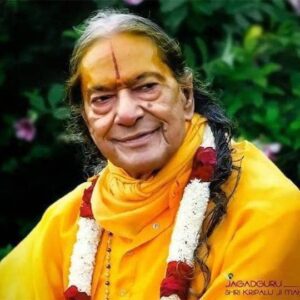
 TV Asia
TV Asia Aastha:
Aastha: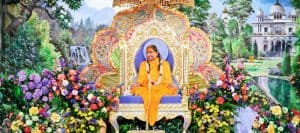
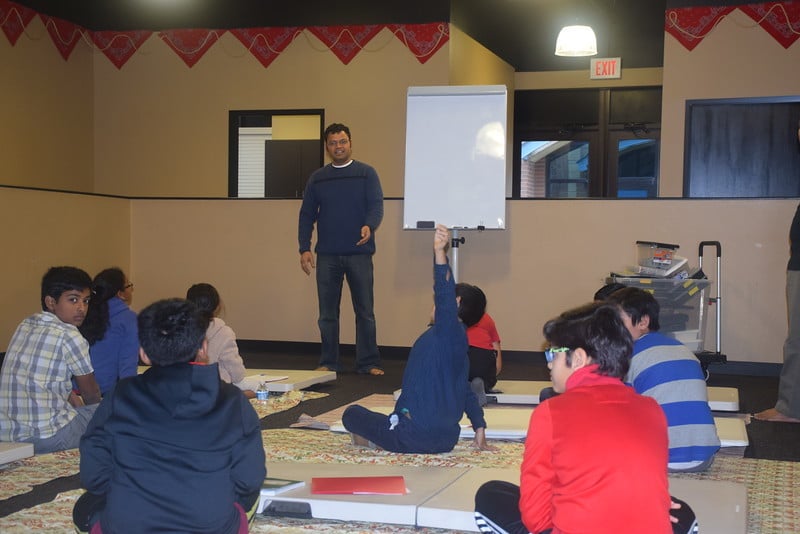
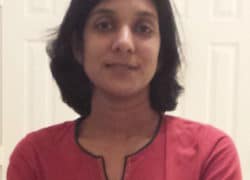

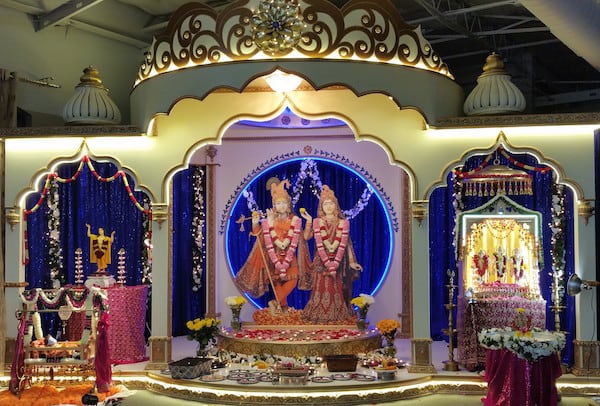
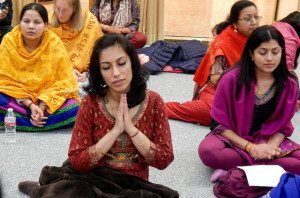 To inspire devotion to Radha Krishna by sharing the teachings of Sanatan Dharm Hindu scriptures, practicing the philosophy and practical aspects of Bhakti through Spiritual Discourses, Satsangs, Family Camps and Meditation programs
To inspire devotion to Radha Krishna by sharing the teachings of Sanatan Dharm Hindu scriptures, practicing the philosophy and practical aspects of Bhakti through Spiritual Discourses, Satsangs, Family Camps and Meditation programs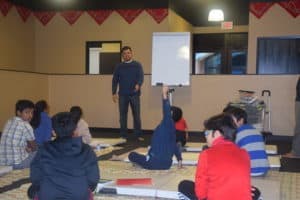 To provide youth, living in the western culture, a deep immersion into Indian tradition, culture and give them skills that can help children excel at school and in life
To provide youth, living in the western culture, a deep immersion into Indian tradition, culture and give them skills that can help children excel at school and in life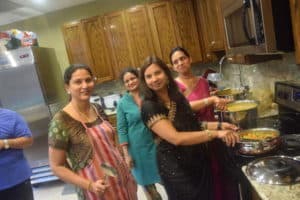
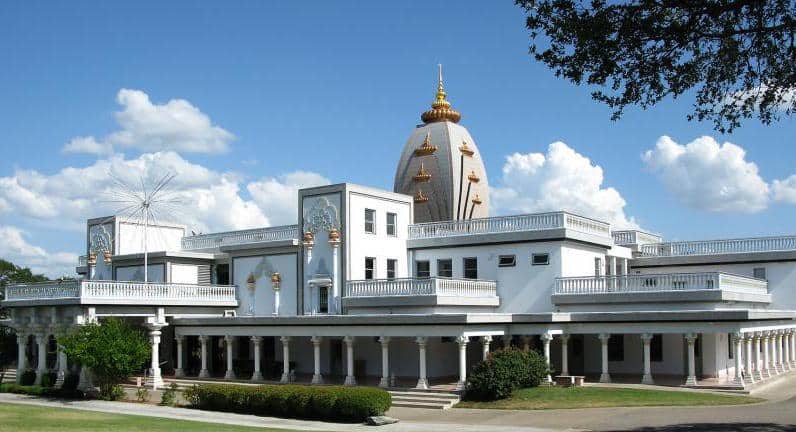
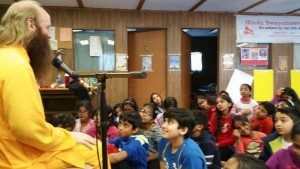 To Teach The True Knowledge of Hindu Vedic Scriptures and to ensure authentic teachings of Hindu religion are available for future generations in a simplified, practical way that is combined with logical scientific explanations as to how we can make them relevant to modern living.
To Teach The True Knowledge of Hindu Vedic Scriptures and to ensure authentic teachings of Hindu religion are available for future generations in a simplified, practical way that is combined with logical scientific explanations as to how we can make them relevant to modern living.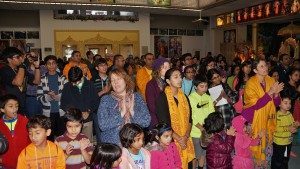 To Teach The Practical Form Of Devotion
To Teach The Practical Form Of Devotion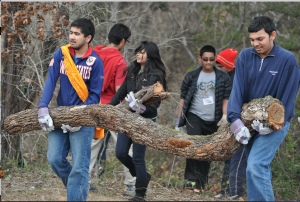 To Help Souls In Need through support of Humanitarian and Charitable Projects. This way we can not only improve the material welfare of society but elevate our own self through the act of giving and thereby accelerating our own spiritual progress.
To Help Souls In Need through support of Humanitarian and Charitable Projects. This way we can not only improve the material welfare of society but elevate our own self through the act of giving and thereby accelerating our own spiritual progress.